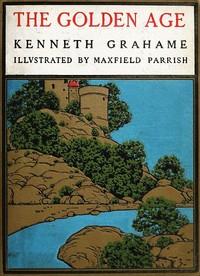Read this ebook for free! No credit card needed, absolutely nothing to pay.
Words: 290062 in 61 pages
This is an ebook sharing website. You can read the uploaded ebooks for free here. No credit cards needed, nothing to pay. If you want to own a digital copy of the ebook, or want to read offline with your favorite ebook-reader, then you can choose to buy and download the ebook.


: The Life of William Ewart Gladstone Vol. 2 (of 3) 1859-1880 by Morley John - Gladstone W. E. (William Ewart) 1809-1898; Great Britain Politics and government 1837-1901; Liberal Party (Great Britain) Biography; Prime ministers Great Britain Biography
William Ewart Gladstone; from a painting by Sir J. E. Millais, P.R.A, in the National Gallery.
Rarely, if ever, in the course of our history has there been such a mixture of high considerations, legislative, military, commercial, foreign, and constitutional, each for the most part traversing the rest, and all capable of exercising a vital influence on public policy, as in the long and complicated session of 1860. The commercial treaty first struck the keynote of the year; and the most deeply marked and peculiar feature of the year was the silent conflict between the motives and provisions of the treaty on the one hand, and the excitement and exasperation of military sentiment on the other.--GLADSTONE.
This description extends in truth much beyond the session of a given year to the whole existence of the new cabinet, and through a highly important period in Mr. Gladstone's career. More than that, it directly links our biographic story to a series of events that created kingdoms, awoke nations, and re-made the map of Europe. The opening of this long and complex episode was the Italian revolution. Writing to Sir John Acton in 1864 Mr. Gladstone said to him of the budget of 1860, "When viewed as a whole, it is one of the few cases in which my fortunes as an individual have been closely associated with matters of a public and even an historic interest." I will venture to recall in outline to the reader's memory the ampler background of this striking epoch in Mr. Gladstone's public life. The old principles of the European state-system, and the old principles that inspired the vast contentions of ages, lingered but they seemed to have grown decrepit. Divine right of kings, providential pre-eminence of dynasties, balance of power, sovereign independence of the papacy,--these and the other accredited catchwords of history were giving place to the vague, indefinable, shifting, but most potent and inspiring doctrine of Nationality. On no statesman of this time did that fiery doctrine with all its tributaries gain more commanding hold than on Mr. Gladstone. "Of the various and important incidents," he writes in a memorandum, dated Braemar, July 16, 1892, "which associated me almost unawares with foreign affairs in Greece , in the Neapolitan kingdom , and in the Balkan peninsula and the Turkish empire , I will only say that they all contributed to forward the action of those home causes more continuous in their operation, which, without in any way effacing my old sense of reverence for the past, determined for me my place in the present and my direction towards the future."
At the opening of the seventh decade of the century--ten years of such moment for our western world--the relations of the European states with one another had fallen into chaos. The perilous distractions of 1859-62 were the prelude to conflicts that after strange and mighty events at Sadowa, Venice, Rome, Sedan, Versailles, came to their close in 1871. The first breach in the ramparts of European order set up by the kings after Waterloo, was the independence of Greece in 1829. Then followed the transformation of the power of the Turk over Roumanians and Serbs from despotism to suzerainty. In 1830 Paris overthrew monarchy by divine right; Belgium cut herself asunder from the supremacy of the Dutch; then Italians and Poles strove hard but in vain to shake off the yoke of Austria and of Russia. In 1848 revolts of race against alien dominion broke out afresh in Italy and Hungary. The rise of the French empire, bringing with it the principle or idiosyncrasy of its new ruler, carried this movement of race into its full ascendant. Treaties were confronted by the doctrine of Nationality. What called itself Order quaked before something that for lack of a better name was called the Revolution. Reason of State was eclipsed by the Rights of Peoples. Such was the spirit of the new time.
The end of the Crimean war and the peace of Paris brought a temporary and superficial repose. The French ruler, by strange irony at once the sabre of Revolution and the trumpet of Order, made a beginning in urging the constitution of a Roumanian nationality, by uniting the two Danubian principalities in a single quasi-independent state. This was obviously a further step towards that partition of Turkey which the Crimean war had been waged to prevent. Austria for reasons of her own objected, and England, still in her Turcophil humour, went with Austria against France for keeping the two provinces, although in fiscal and military union, politically divided. According to the fashion of that time--called a comedy by some, a homage to the democratic evangel by others--a popular vote was taken. Its result was ingeniously falsified by the sultan ; western diplomacy insisted that the question of union should be put afresh. Mr. Gladstone, not then in office, wrote to Lord Aberdeen :--
The course taken about the Principalities has grieved me. I do not mean so much this or that measure, as the principle on which it is to rest. I thought we made war in order to keep Russia out, and then suffer life, if it would, to take the place of death. But it now seems to be all but avowed, that the fear of danger, not to Europe, but to Islam,--and Islam not from Russia, but from the Christians of Turkey,--is to be a ground for stinting their liberties.
In no long time Roumania was created into a virtually independent state. Meanwhile, much against Napoleon's wish and policy, these proceedings chilled the alliance between France and England. Other powers grew more and more uneasy, turning restlessly from side to side, like sick men on their beds. The object of Russia ever since the peace had been, first to break down the intimacy between England and France, by flattering the ambition and enthusiasm of the French Emperor; next to wreak her vengeance on Austria for offences during the Crimean war, still pronounced unpardonable. Austria, in turn, was far too slow for a moving age; she entrenched herself behind forms with too little heed to substance; and neighbours mistook her dulness for dishonesty. For the diplomatic air was thick and dark with suspicion. The rivalry of France and Austria in Italy was the oldest of European stories, and for that matter the Lombardo-Venetian province was a possession of material value to Austria, for while only containing one-eighth of her population, it contributed one-fourth of her revenue.
Among Cavour's difficulties at this most critical moment was the attitude of England. The government of Lord Derby, true to the Austrian sympathies of his party, and the German sympathies of the court, accused Italy of endangering the peace of Europe. "No," said Cavour, "it is the statesmen, the diplomatists, the writers of England, who are responsible for the troubled situation of Italy; for is it not they who have worked for years to kindle political passion in our peninsula, and is it not England that has encouraged Sardinia to oppose the propaganda of moral influences to the illegitimate predominance of Austria in Italy?" To Mr. Gladstone, who had seen the Austrian forces in Venetia and in Lombardy, he said, "You behold for yourself, that it is Austria who menaces us; here we are tranquil; the country is calm; we will do our duty; England is wrong in identifying peace with the continuance of Austrian domination." Two or three days later the Piedmontese minister made one of those momentous visits to Paris that forced a will less steadfast than his own.
The French Emperor in his dealings with Cavour had entangled himself, in Mr. Gladstone's phrase, with "a stronger and better informed intellect than his own." "Two men," said Guizot, "at this moment divide the attention of Europe, the Emperor Napoleon and Count Cavour. The match has begun. I back Count Cavour." The game was long and subtly played. It was difficult for the ruler who had risen to power by bloodstained usurpation and the perfidious ruin of a constitution, to keep in step with a statesman, the inspiring purpose of whose life was the deliverance of his country by the magic of freedom. Yet Napoleon was an organ of European revolution in a double sense. He proclaimed the doctrine of nationality, and paid decorous homage to the principle of appeal to the popular voice. In time England appeared upon the scene, and by his flexible management of the two western powers, England and France, Cavour executed the most striking political transformation in the history of contemporary Europe. It brought, however, as Mr. Gladstone speedily found, much trouble into the relations of the two western powers with one another.
The overthrow of the Derby government and the accession of the whigs exactly coincided in time with the struggle between Austria and the Franco-Sardinian allies on the bloody fields of Magenta and Solferino. A few days after Mr. Gladstone took office, the French and Austrian emperors and King Victor Emmanuel signed those preliminaries of Villafranca , which summarily ended an inconclusive war by the union of Lombardy to the Piedmontese kingdom, and the proposed erection of an Italian federation over which it was hoped that the pope might preside, and of which Venetia, still remaining Austrian, should be a member. The scheme was intrinsically futile, but it served its turn. The Emperor of the French was driven to peace by mixed motives. The carnage of Solferino appalled or unnerved him; he had revealed to his soldiers and to France that their ruler had none of the genius of a great commander; the clerical party at home fiercely assailed the prolongation of a war that must put the pope in peril; the case of Poland, the case of Hungary, might almost any day be kindled into general conflagration by the freshly lighted torch of Nationality; above all, Germany might stride forward to the Rhine to avenge the repulse of Austria on the Po and the Mincio.
Whatever the motive, Villafranca was a rude check to Italian aspirations. Cavour in poignant rage peremptorily quitted office, rather than share responsibility for this abortive end of all the astute and deep-laid combinations for ten years past, that had brought the hated Austrian from the triumph of Novara down to the defeat of Solferino. Before many months he once more grasped the helm. In the interval the movement went forward as if all his political tact, his prudence, his suppleness, his patience, and his daring, had passed into the whole population of central Italy. For eight months after Villafranca, it seemed as if the deep and politic temper that built up the old Roman Commonwealth, were again alive in Bologna, Parma, Modena, Florence. When we think of the pitfalls that lay on every side, how easily France might have been irritated or estranged, what unseasonable questions might not unnaturally have been forced forward, what mischief the voice and spirit of the demagogue might have stirred up, there can surely be no more wonderful case in history of strong and sagacious leaders, Cavour, Farini, Ricasoli, the Piedmontese king, guiding a people through the ferments of revolt, with discipline, energy, legality, order, self-control, to the achievement of a constructive revolution. Without the sword of France the work could not have been begun; but it was the people and statesmen of northern and central Italy who in these eight months made the consummation possible. And England, too, had no inconsiderable share; for it was she who secured the principle of non-intervention by foreign powers in Italian affairs; it was she who strongly favoured the annexation of central Italy to the new kingdom in the north. Here it was that England directly and unconsciously opened the way to a certain proceeding that when it came to pass she passionately resented. In the first three weeks of March Victor Emmanuel legalised in due form the annexation of the four central states to Piedmont and Lombardy, and in the latter half of April he made his entry into Florence. Cavour attended him, and strange as it sounds, he now for the first time in his life beheld the famed city,--centre of undying beauty and so many glories in the history of his country and the genius of mankind. In one spot at least his musings might well have been profound--the tomb of Machiavelli, the champion of principles three centuries before, to guide that armed reformer, part fox part lion, who should one day come to raise up an Italy one and independent. The Florentine secretary's orb never quite sets, and it was now rising to a lurid ascendant in the politics of Europe for a long generation to come, lighting up the unblest gospel that whatever policy may demand justice will allow.
Free books android app tbrJar TBR JAR Read Free books online gutenberg
More posts by @FreeBooks

: The Golden Age by Grahame Kenneth Parrish Maxfield Illustrator - England Fiction; Bildungsromans; Pastoral fiction; Siblings Fiction; Country life Fiction


: Discussion on American Slavery by Breckinridge Robert J Robert Jefferson Thompson George - Slavery United States






